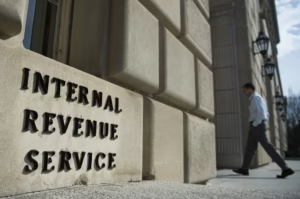The White House’s hunt for a new chair of the Federal Reserve is being led by Treasury Secretary Scott Bessent.
The Federal Reserve needs extensive reform, according to Treasury Secretary Scott Bessent, who said the central bank is experiencing “mission creep” and “institutional bloat.”
Bessent compared the Fed to a lethal virus that had gotten out of a lab and had to be returned to its bounds in a critical editorial that was published in the Wall Street Journal.
The essay was written during a period when the Trump administration was attempting to take control of the Fed board by claiming that the president could fire a Fed governor. Trump accused Fed Governor Lisa Cook of mortgage fraud and fired her after a months-long campaign to pressure Fed Chair Jerome Powell to cut interest rates. Cook has sued to prevent her from being fired.
Trump nominees will have a four-seat majority on the Fed board of governors, enabling them to enact significant changes to interest rates and bank oversight if Cook is forced to resign and Stephen Miran, the Trump economist advisor, is approved by the Senate. It will raise doubts about the Fed’s independence from the White House.
According to analysts, Bessent’s essay aims to defend seizing control of the Fed.
“This is all to gain control of the most powerful agency in the government,” the co-author of a book on Fed independence, Mark Spindel, stated.
The Fed was established by Congress to curtail the power of the White House. Fed governors must be confirmed by the Senate and have staggered terms of 14 years. Removal of Fed officials is only possible for “cause.”
Bessent claimed in his essay that the Fed “must re-establish its credibility as an independent institution focused solely” on maintaining low unemployment, stable inflation, and moderate interest rates since it has lost the trust of the American people.
Bessent proposed that the Fed be deprived of its authority to oversee the country’s banks and demanded an impartial, independent examination of the central bank.
Congress briefly contemplated a Democratic-led proposal to deprive the Fed of its banking-oversight authority following the 2008 financial crisis, but instead greatly increased the Fed’s regulatory authority.
Following the 2008 revelation that American banks were “too big to fail,” Congress granted the Fed authority to expand oversight of the largest banks, imposing capital requirements and stress testing.
According to Ian Katz, managing director of the research firm Capital Alpha Partners, “the Fed is the most powerful, and has the most authority, of the bank regulators,”
Bessent’s proposal would limit the Fed’s attention to “macro surveillance, lender-of-last-resort liquidity, and monetary policy.”
Without legislation, Bessent’s proposed modifications cannot be implemented. Katz stated that he did not believe Congress would take appropriate action.
Bessent stated that the Fed’s attempt to lower interest rates during a recession by using its balance sheet “should only be used in true emergencies.”
Which economic sectors receive funding has been directly impacted by the balance-sheet strategy, he claimed, “intervening in what should be the domain of markets and elected officials.”
“Expanded powers have fostered a culture in Washington that relies on the Fed to bail out the government after poor fiscal choices,” Bessent stated.





